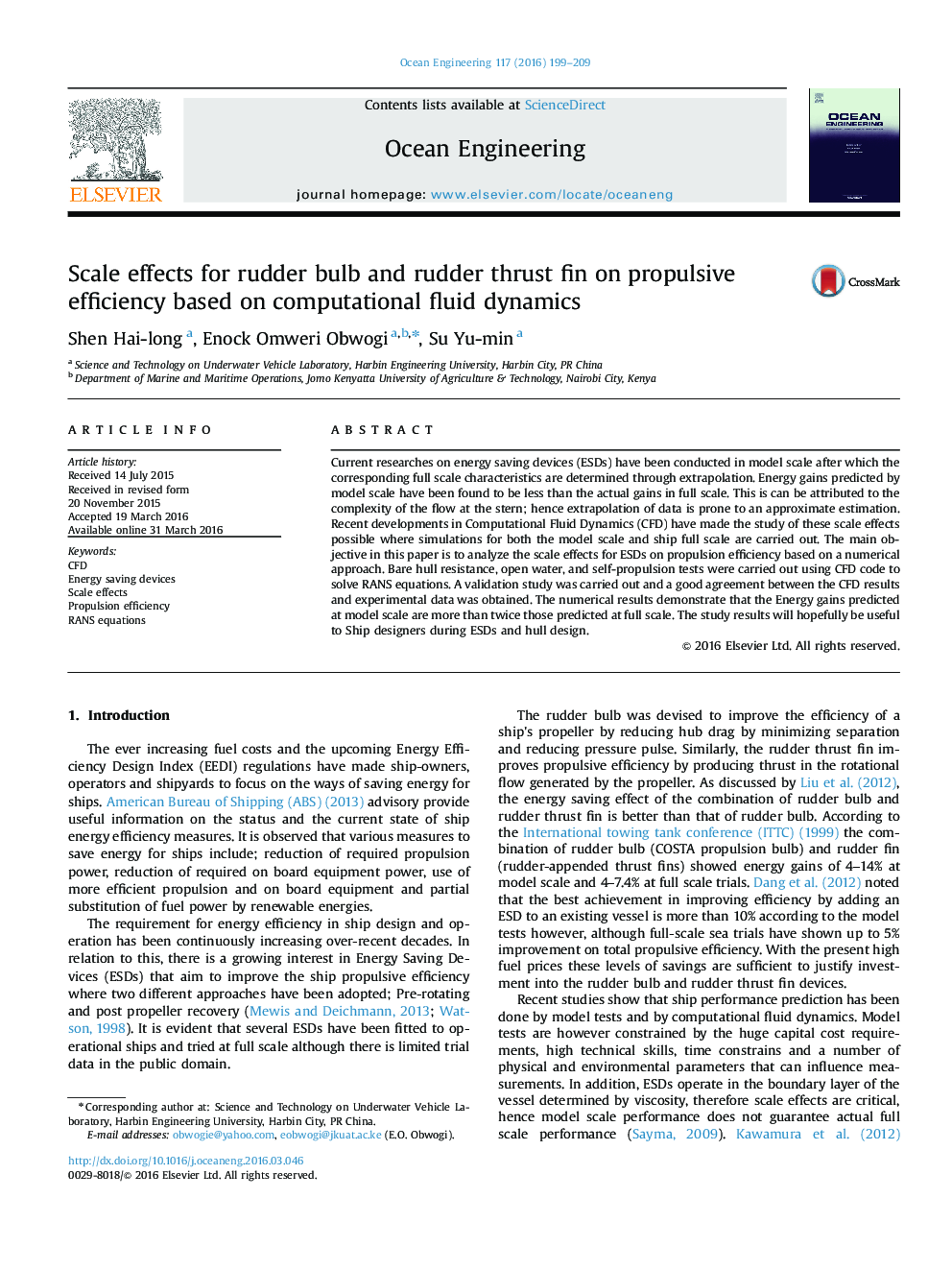| Article ID | Journal | Published Year | Pages | File Type |
|---|---|---|---|---|
| 1725108 | Ocean Engineering | 2016 | 11 Pages |
Abstract
Current researches on energy saving devices (ESDs) have been conducted in model scale after which the corresponding full scale characteristics are determined through extrapolation. Energy gains predicted by model scale have been found to be less than the actual gains in full scale. This is can be attributed to the complexity of the flow at the stern; hence extrapolation of data is prone to an approximate estimation. Recent developments in Computational Fluid Dynamics (CFD) have made the study of these scale effects possible where simulations for both the model scale and ship full scale are carried out. The main objective in this paper is to analyze the scale effects for ESDs on propulsion efficiency based on a numerical approach. Bare hull resistance, open water, and self-propulsion tests were carried out using CFD code to solve RANS equations. A validation study was carried out and a good agreement between the CFD results and experimental data was obtained. The numerical results demonstrate that the Energy gains predicted at model scale are more than twice those predicted at full scale. The study results will hopefully be useful to Ship designers during ESDs and hull design.
Related Topics
Physical Sciences and Engineering
Engineering
Ocean Engineering
Authors
Shen Hai-long, Enock Omweri Obwogi, Su Yu-min,
